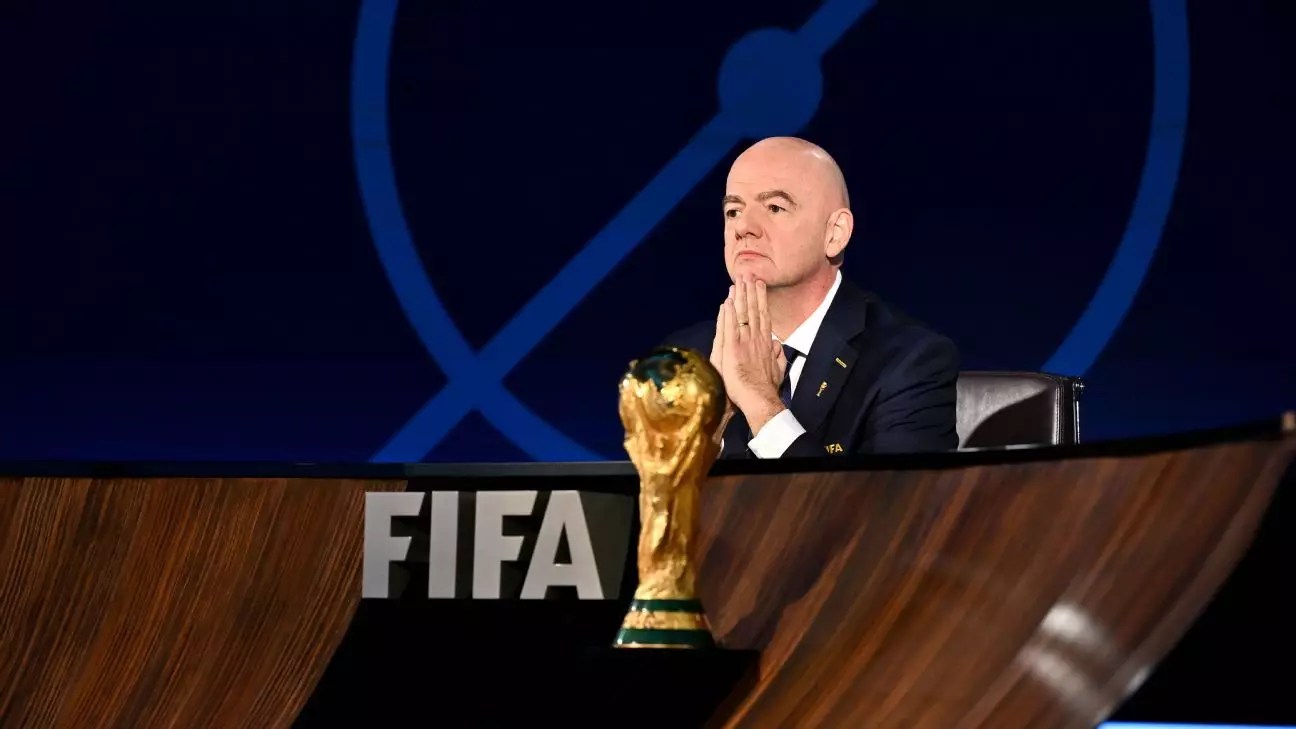The landscape of international football is on the cusp of significant transformation as FIFA has officially announced the host nations for the upcoming World Cups in 2030 and 2034, signaling a pivotal moment for the sport. With the respective tournaments slated to take place in Morocco, Portugal, and Spain for 2030, and exclusively in Saudi Arabia for 2034, this article examines the implications and considerations surrounding these announcements.
Historic Decisions and Celebrations
FIFA’s recent general congress was marked not just by routine administrative matters, but also by a historical celebration of football that aims to transcend borders. The dual award of hosting rights was unanimously applauded by over 200 member federations. FIFA president Gianni Infantino emphasized the broader reach of football, stating that this initiative enhances opportunities rather than diluting quality. This points to FIFA’s strategy to globalize the sport further, harnessing the fervent passion for football that exists in various corners of the world.
However, while the applause may paint a picture of unity and enthusiasm, it raises critical questions about the integrity and transparency of the bidding process. Notably, Norway’s Football Federation publicly challenged the bidding methodology, branding it as “flawed and inconsistent.” This dissent suggests an undercurrent of dissatisfaction that could have deeper implications for FIFA’s governance.
Saudi Arabia’s solitary bid for the 2034 World Cup was a defining moment. The country’s decision to enter the race without competition positioned it uniquely, yet it also raised eyebrows regarding the decision-making processes at FIFA. Some industry experts express concerns about the potential monopolistic tendencies that may arise if an open bidding process does not allow for multiple bids. Furthermore, the backdrop of political and human rights issues in Saudi Arabia prompts discussions about the ethical implications of hosting a global event in the kingdom.
The choice of Saudi Arabia further amplifies the discourse surrounding the scheduling of the World Cup during winter months, a contentious adjustment aimed at accommodating the extreme summer temperatures of the region. This creates a potential clash with domestic leagues in Europe, hinting at the broader tension between FIFA’s objectives and the operational realities of established football leagues.
Conversely, the decision to co-host the 2030 World Cup across Morocco, Portugal, and Spain marks a collaborative effort that honors the centenary of the inaugural tournament held in Uruguay. Notably, a significant gesture will include hosting the opening match in Montevideo, a move that pays homage to football’s rich heritage. However, it remains to be seen how the logistics of co-hosting will be managed effectively across multiple nations, as discrepancies in infrastructure and planning could present unforeseen challenges.
The inclusion of one-off matches in South America also opens new avenues for global engagement, introducing a unique flavor to an already diversified tournament structure. This dynamic reflects efforts to preserve traditional roots while embracing modern developments in world football.
The announcements regarding the 2030 and 2034 World Cups set the stage for a new era in international football, fostering both excitement and apprehension among stakeholders. While the ambition to expand football’s reach and engage with a diverse audience is commendable, it is essential for FIFA to mitigate criticism regarding its processes and uphold the integrity of the sport. As we approach these fresh tournaments, the football community must remain vigilant and proactive in addressing both opportunities and challenges that lie ahead.


Leave a Reply